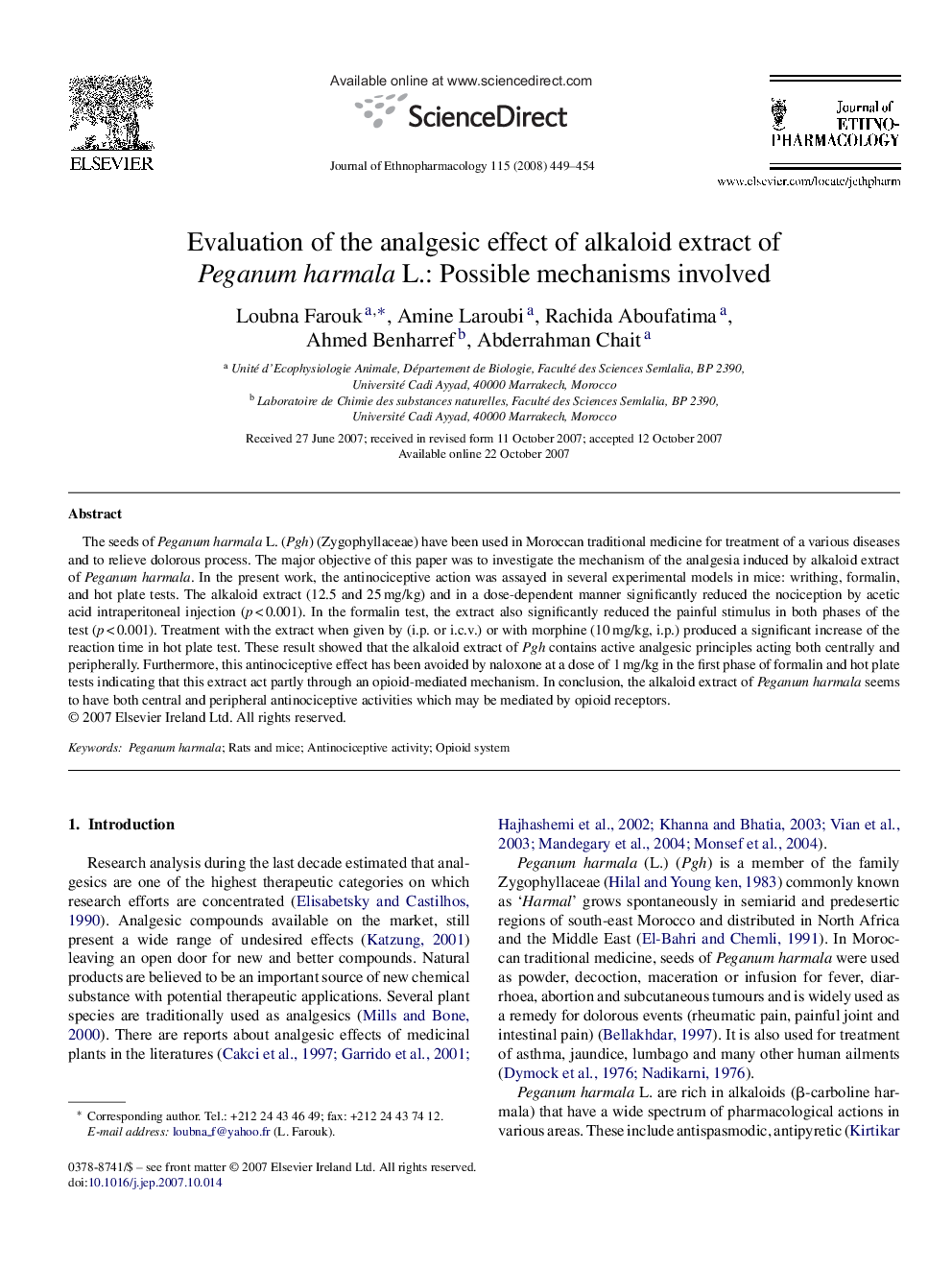| Article ID | Journal | Published Year | Pages | File Type |
|---|---|---|---|---|
| 2546796 | Journal of Ethnopharmacology | 2008 | 6 Pages |
The seeds of Peganum harmala L. (Pgh) (Zygophyllaceae) have been used in Moroccan traditional medicine for treatment of a various diseases and to relieve dolorous process. The major objective of this paper was to investigate the mechanism of the analgesia induced by alkaloid extract of Peganum harmala. In the present work, the antinociceptive action was assayed in several experimental models in mice: writhing, formalin, and hot plate tests. The alkaloid extract (12.5 and 25 mg/kg) and in a dose-dependent manner significantly reduced the nociception by acetic acid intraperitoneal injection (p < 0.001). In the formalin test, the extract also significantly reduced the painful stimulus in both phases of the test (p < 0.001). Treatment with the extract when given by (i.p. or i.c.v.) or with morphine (10 mg/kg, i.p.) produced a significant increase of the reaction time in hot plate test. These result showed that the alkaloid extract of Pgh contains active analgesic principles acting both centrally and peripherally. Furthermore, this antinociceptive effect has been avoided by naloxone at a dose of 1 mg/kg in the first phase of formalin and hot plate tests indicating that this extract act partly through an opioid-mediated mechanism. In conclusion, the alkaloid extract of Peganum harmala seems to have both central and peripheral antinociceptive activities which may be mediated by opioid receptors.
